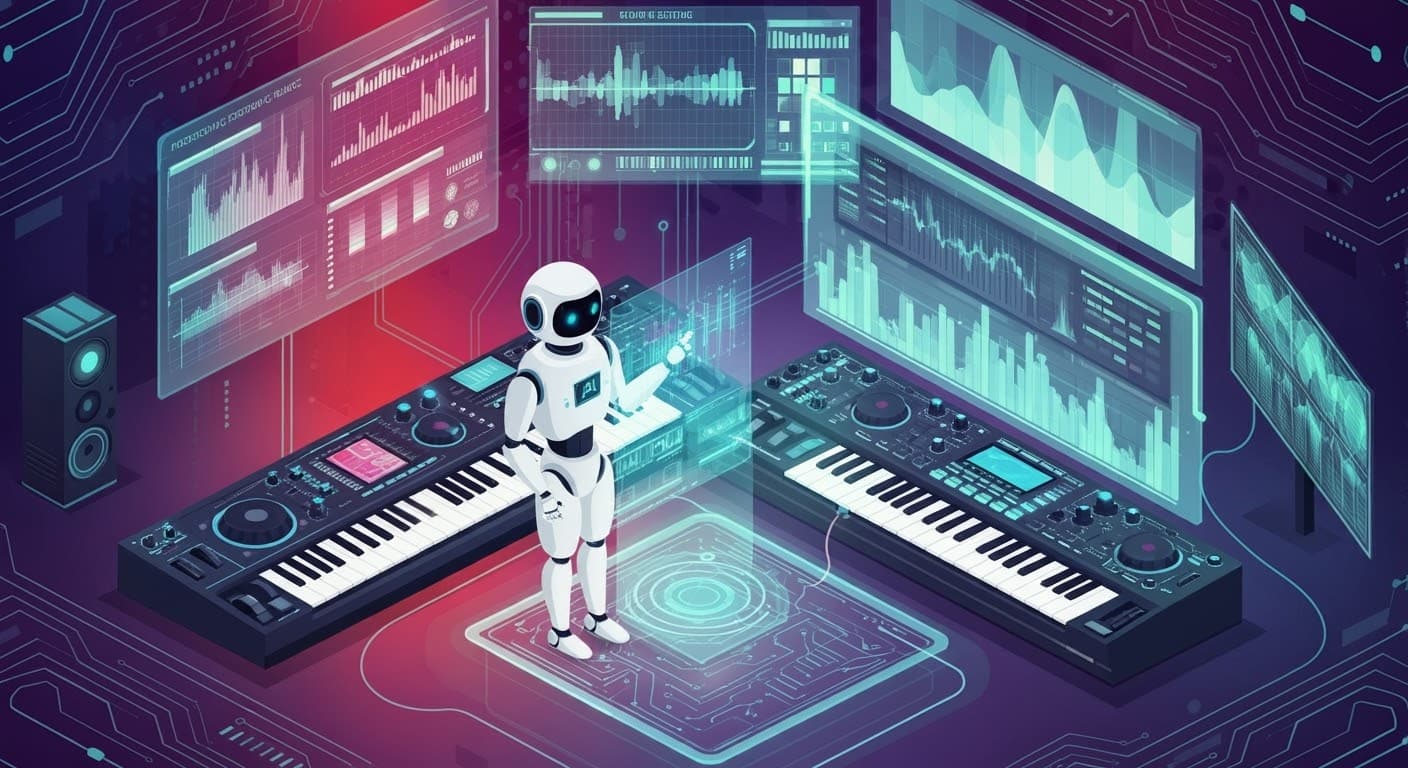Generated Music by Artificial Intelligence

July 14 2025
Artificial intelligence (AI) is revolutionizing nearly every industry, and music is no exception. From virtual composers to synthetic vocalists, AI is redefining how music is created, produced, and consumed.
In this article, we'll explore what AI-generated music is, how it works, what tools are available today, and whether it represents a threat to human musicians or, conversely, an unprecedented opportunity.
🤖 What is AI-Generated Music?
AI-generated music is music that has been composed, performed, or produced—either in part or entirely—by AI systems. These systems use machine learning algorithms trained on millions of songs, scores, harmonic structures, styles, and rhythmic patterns to generate new, original musical pieces.
🧠 How Does It Work?
AI models, such as machine learning or deep learning models, learn from large musical databases and are then capable of generating new compositions by imitating certain styles or even creating new ones. Some models can generate only melodies, while others can create harmonies, rhythms, or even lyrics with synthetic human-like voices.
Examples of technologies used:
- Recurrent Neural Networks (RNN)
- Transformers (like GPT)
- Generative models like GANs
- Audio-to-Audio AI for synthesizing voices or instruments
🎧 Popular AI Tools for Creating Music
Here are some of the best-known platforms and tools:
- Suno AI: Generates complete songs from text. You can request a sad ballad, a reggaeton track, or a song in the style of Queen.
- Aiva: Ideal for film and video game composers. It generates high-quality orchestral music.
- Amper Music: A platform focused on content creators. It offers royalty-free music generated by AI.
- Boomy: Allows anyone, even those without musical knowledge, to create songs in minutes.
- Soundraw: Automatic composition that you can adjust to your liking in terms of duration, instruments, and energy.
🎤 AI-Generated Voices
One of the most surprising fields is synthetic voices. Tools already exist such as:
- Voicery, Vocaloid, or Synthesizer V, which generate sung voices with human-like tones and emotions.
- Models like ElevenLabs or iZotope VocalSynth that allow you to transform a real voice into a completely different one or create new ones from scratch.
💡 Advantages of AI Music
- Accessibility: Anyone can create music without knowing music theory.
- Speed: Tracks can be generated in seconds.
- Experimentation: You can try hybrid genres or compositions that would be impossible for humans.
- Collaboration: Human composers can use AI as a creative tool or production assistant.
⚠️ Is It a Threat to Musicians?
It depends on the perspective. Many artists fear being replaced, but others use it as a creative ally. Just as photography didn't eliminate painting, AI doesn't have to eliminate the musician; instead, it can change their role from a traditional performer to a creative director.
The important thing is to understand that AI still needs humans to define intention, emotion, style, and message.
🔮 What's Next for the Future?
The future points toward hybrid collaborations between humans and machines, where AI will be just another tool in the creative process, much like synthesizers, DAWs, or mixing plugins are today. We might even see live concerts where an AI improvises alongside real musicians.
🧠 Conclusion
AI-generated music is not a passing fad. It is a new form of expression that opens doors for creators, producers, developers, and listeners. Far from replacing musicians, it can expand what is possible.
So, what do you think?
Would you use AI to compose a song? Would you like to experiment with your own virtual voice? Leave me your comments or share your experiences creating music with tools like Suno or Boomy.